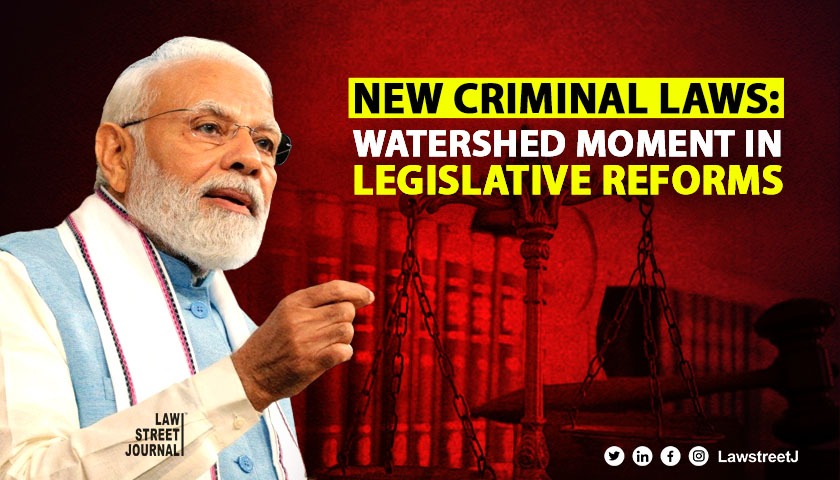NEW DELHI: The Narendra Modi government has brought in major reforms in criminal laws of the country by replacing colonial era Indian Penal Code, Criminal Procedure Code and the Indian Evidence Act.
After the legislative reform in dilution of Article 370 of the Constitution ratified by the Supreme Court's Constitution bench, and criminalisation of triple talaq, the latest move can be termed as watershed moment.
The new penal provisions included a chapter on crimes against women and children, terrorism and organised crimes.
It also defined a separate offence of mob lynching as crime related to murder committed on the basis of race, caste, community etc with punishment of life imprisonment or death penalty. Instead of sedition, a new provision related to treason has been added.
Further, the laws have been made victim-centric by bringing in reforms in the criminal justice system with key features, like Right to Participation (Opportunity for the victim to express his views, BNSS 360), Right to Information (BNSS Section 173, 193 and 230) and Right to compensation for loss.
According to the new provisions, the practice of filing zero FIR has been institutionalised (BNSS 173) and the FIR can be lodged anywhere, irrespective of the area in which the crime took place.
This process of reform in the laws of the criminal justice system was started in 2019 led by Union Minister Amit Shah.
Suggestions in this regard were sought from various stakeholders. In 2019, the Home Ministry started this reform process with the Home Minister writing letters to all the Governors, Chief Ministers, Lieutenant Governors/Administrators in September 2019, Chief Justice of India, Chief Justices of High Courts, Bar Councils and Law Universities in January 2020.
Suggestions were also sought from Members of Parliament in December 2021, and from all IPS officers. In March 2020, a committee was also constituted under the chairmanship of the Vice Chancellor of National Law University, Delhi.
The Home Minister held more than 150 meetings, brainstorming on 3200 suggestions received from 18 States, six Union Territories, the Supreme Court of India, 16 High Courts, 27 Judicial Academies Law Universities, Parliament members, IPS officers, and police forces.
The Bharatiya Nyaya Sanhita will have 358 sections, instead of 511 sections of IPC.
As many as 20 new crimes have been added, imprisonment sentence has been increased in 33 crimes, and the amount of fine has been increased in 83 crimes.
It also prescribed mandatory minimum punishment in 23 crimes, and the penalty of community service has been introduced in six crimes and 19 sections have been repealed/removed.
The Bharatiya Nagrik Suraksha Sanhita will have 531 sections, in place of 484 sections of CrPC. A total of 177 provisions have changed, and nine new sections, 39 new sub-sections have been added and along with 44 new provisions and clarifications.
It also prescribed timelines to 35 sections, while adding audio-video provision at 35 places. A total of 14 sections have been repealed/removed.
The Bharatiya Sakshya Adhiniyam will have 170 provisions, instead of the original 167 provisions in Indian Evidence Act. A total of 24 provision have been changed, two new provision, six sub- provision have been added and six provision have been repealed/deleted.














